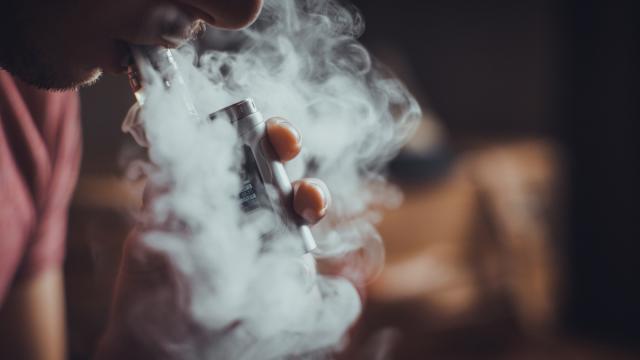Importing an e-cigarette or nicotine liquid refills will become near impossible if proposed laws by Australia’s health minister are passed. The Australian government intends to ask the Governor-General to amend customs regulations, making it illegal to import vaping equipment into the country without a medical prescription.
[related_content first=”1205084″]
If the changes are agreed to, the ban on e-cigarettes containing vaporiser nicotine and nicotine-containing refills would be put in place from July 1, 2020. The ban is expected to last for 12 months.
The government said the changes would make the rules on vaping consistent across the country. At the present time, the purchase of equipment and refills within Australian states and territories is already illegal.
A prescription isn’t a free pass at importing vaping refills
There are, however, exceptions to the blanket ban. Under the proposed new rules, you could get a medical exemption or choose nicotine-free liquid refills instead. The prescription would allow vapers to legally continue vaping, as long as they prove it would help them stop smoking.
But if someone does get the prescription, it can’t be shipped to their own house. A doctor or medical supplier would have to order it on their behalf.
“Individuals would get their vaporiser nicotine-containing e-cigarettes or nicotine-containing refills via a permission granted by the Department of Health to a doctor or medical supplier who would be able to import the goods using a courier service or by cargo service,” the government’s announcement read.
“The goods cannot be imported through international mail.”
Alternatively, returning overseas travellers would be allowed to bring vaping equipment and refills back from holidays provided they have a prescription. Given international travel is off the cards due to coronavirus for some time, this likely won’t be a possibility for many.
Breaking the rules could mean big fines
While it’s still pending approval from the Governor-General, the penalties for breaking the proposed regulations could result in big fines. The Therapeutic Goods Administration (TGA), the regulating body behind the move, said under the Customs Act 1901, the maximum penalty for attempting to import prohibited goods is 1,000 penalty units, or around $222,000 from July 1.
Additionally, the TGA has said Border Force officials will be required to seize any incoming e-cigarette products or refills from the start date and that no refunds will be issued — even if you ordered it before that date.
Not all experts agree that the policy works to reduce e-cigarette use in the country. Professor Wayne Hall, a public policy expert at the University of Queensland told the Australian Science Media Centre it would push a vaping black market.
“The proposed policy is a recipe for increasing the size of the illicit market in e-cigarettes,” Professor Hall said.
“A much better policy would be one that allowed the sale of e-cigarettes that meet consumer safety standards as consumer products to adults. These could be sold via a restricted range of outlets that youth are less able to access, such as tobacconists or adult stores, and sales from these outlets could be closely monitored.”
A Ministerial advisory committee will be set up to consult with the public on making the laws permanent by amending the Poisons Standard. It’s expected it will deliver its final decision by early 2021.
[related_content first=”1218825″]
